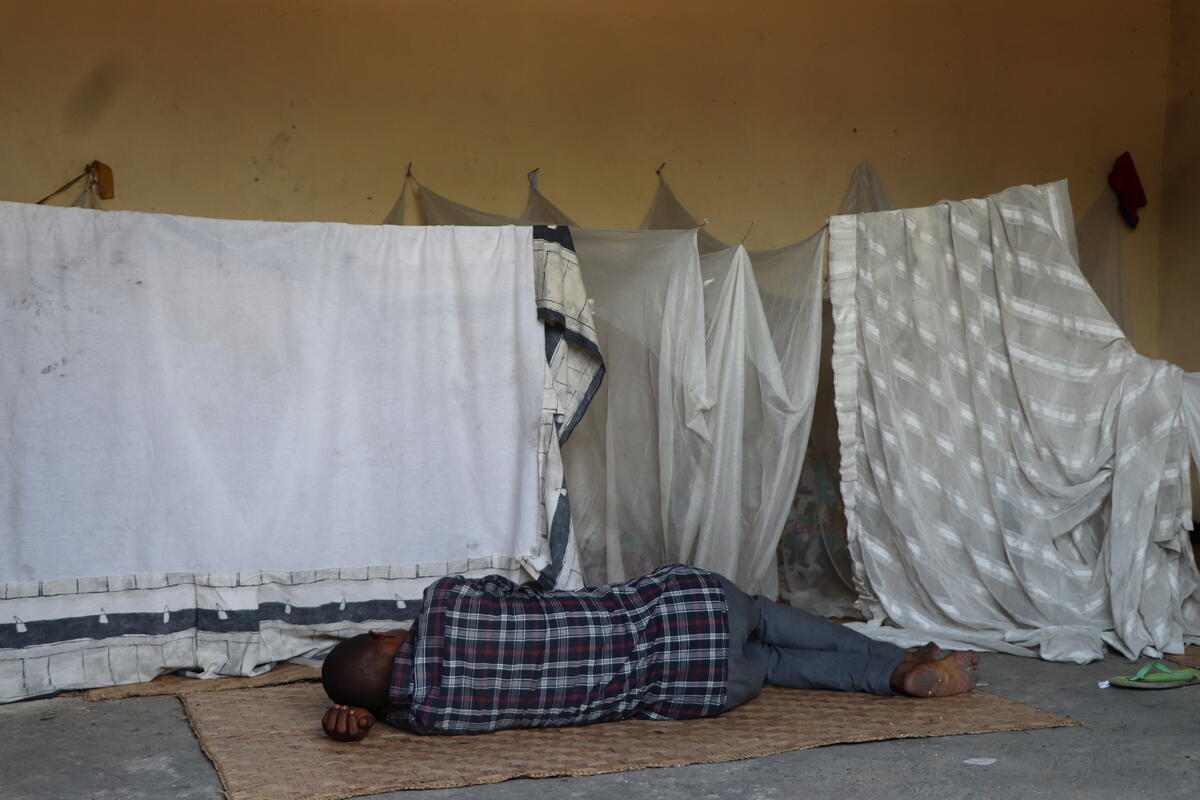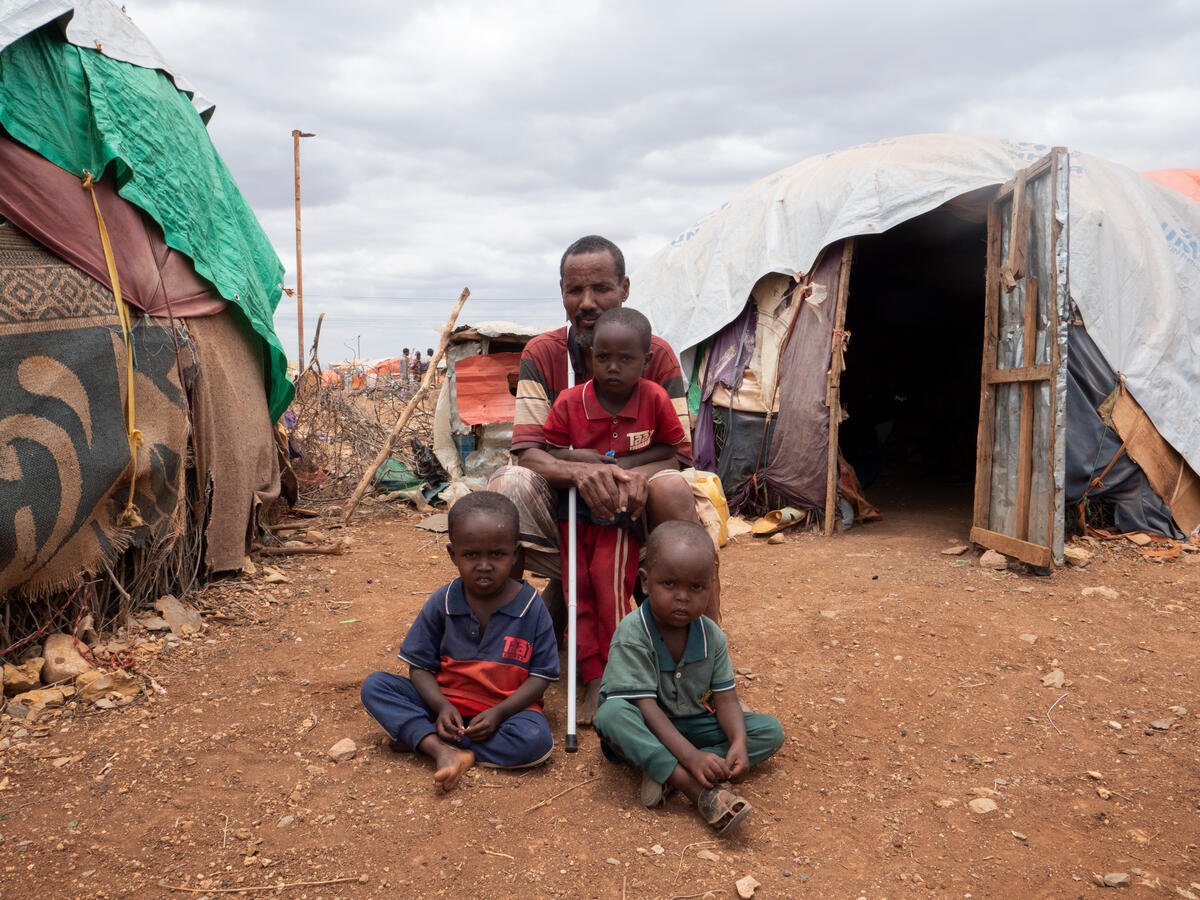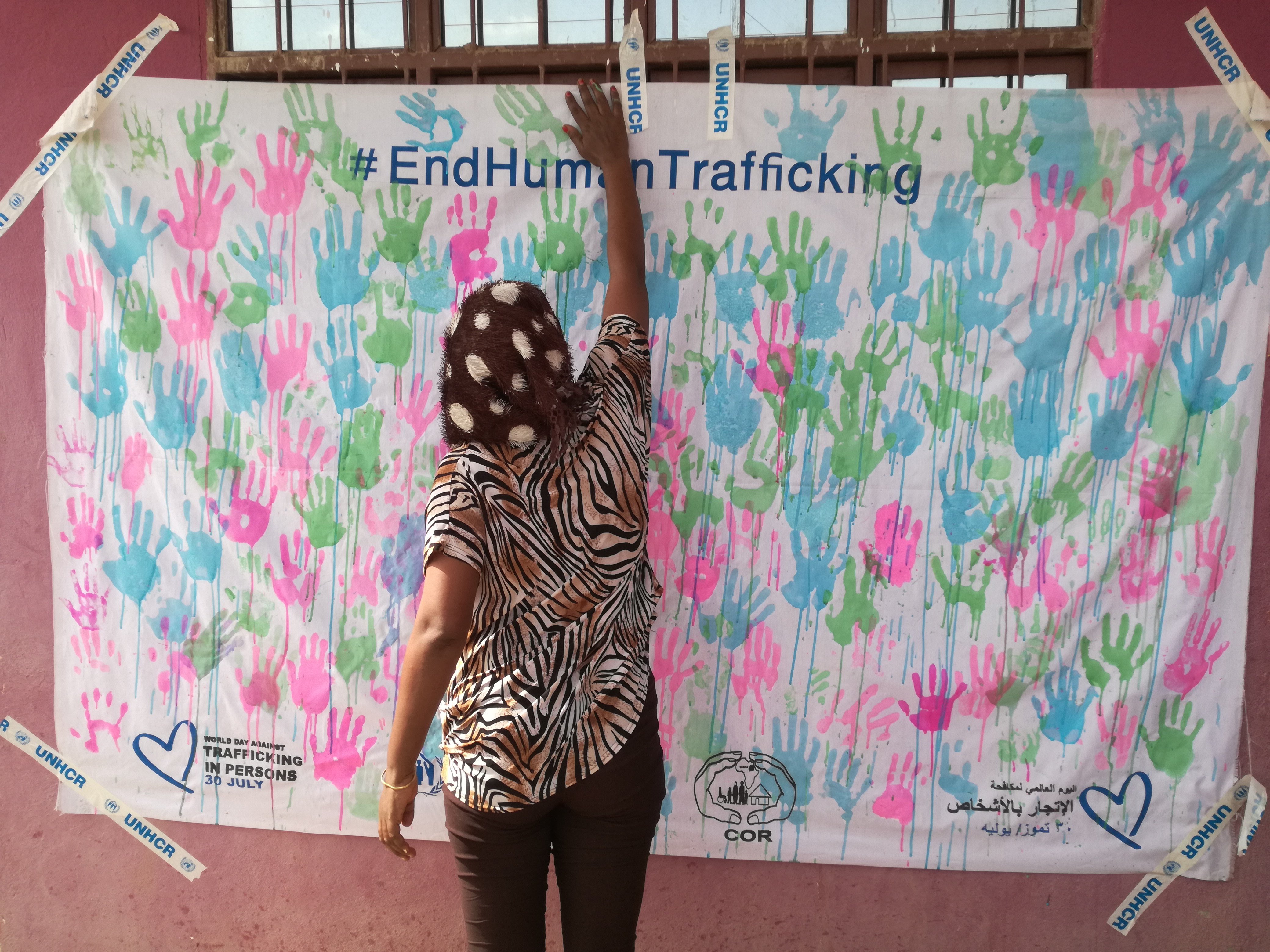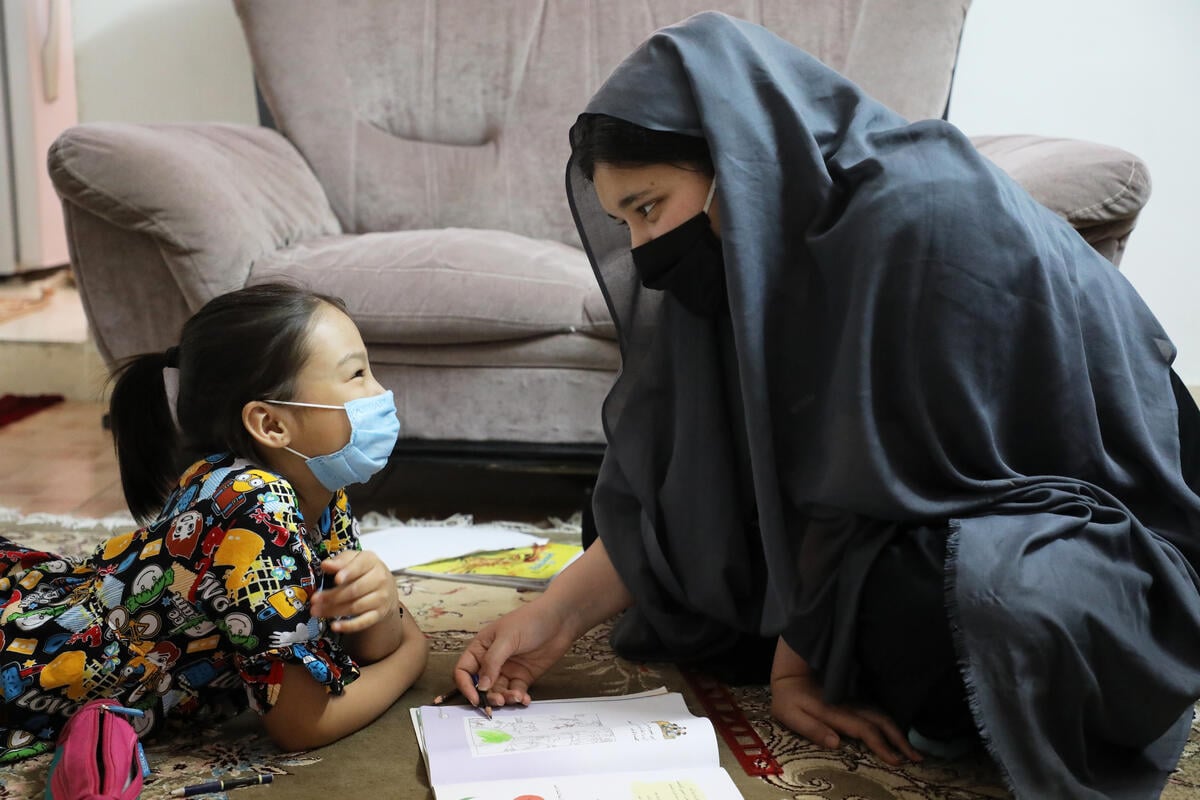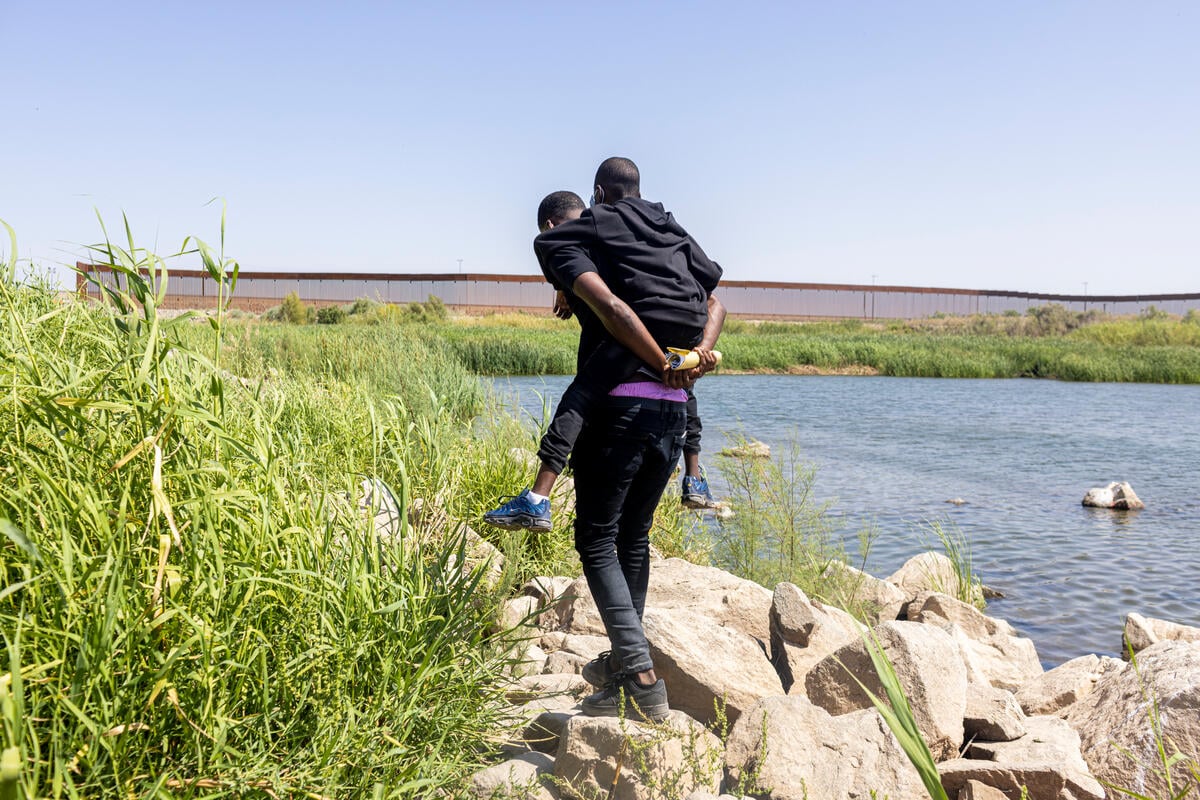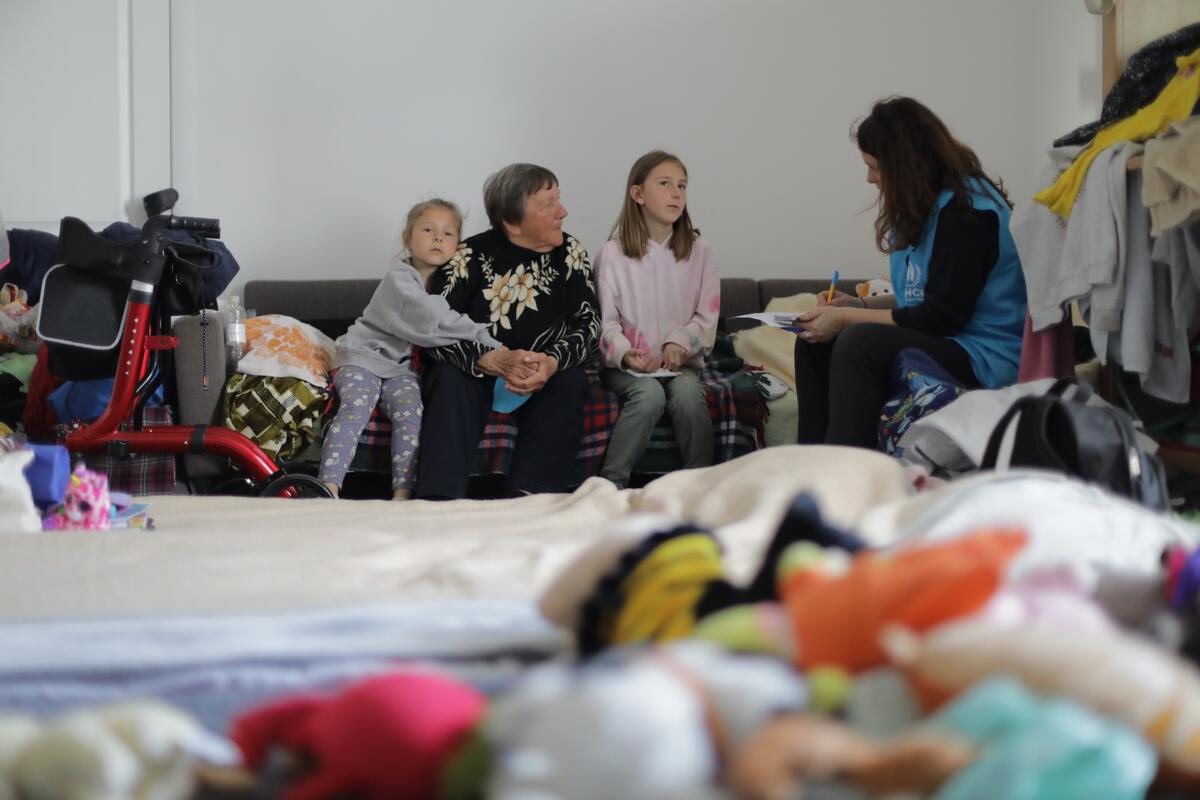Angelina Jolie calls for more international support for Venezuelan refugees in Peru
Angelina Jolie calls for more international support for Venezuelan refugees in Peru
Outside the white and blue building where immigration formalities are carried out, Venezuelan families camp under trees or wherever they can find some shade.
There are groups of people everywhere, sitting around their piled up belongings, holdall bags and suitcases. Big white tents function as clinics, nurseries, vaccination centres and information points. Adults and children eat and sleep in the open air or in the corridors, while they wait to apply for asylum in Peru.
Since August 2018, Tumbes, a hot and dusty border town in Peru's arid northern coast, has seen the arrival of tens of thousands of destitute Venezuelan refugees and migrants. Currently, some 2,000 cross from Ecuador every day.
UNHCR's Special Envoy, Angelina Jolie, was there this week, in order to witness the humanitarian situation, during an official visit to Peru on behalf of UN High Commissioner for Refugees Filippo Grandi, who visited Tumbes himself earlier this month.
Peru is one of the countries most affected by the surge in Venezuelan refugees and migrants in the last three years – the largest movement of people in Latin America’s recent history.
"I heard stories of people dying because of a lack of medical care and medicine."
In Tumbes, Jolie visited the Daughters of Saint Anne, who have turned their convent into a soup kitchen, where hundreds of women, children and men can have at least one hot meal a day. She also visited the binational border post and a shelter for Venezuelan refugees and migrants in the Peruvian capital, Lima. She spoke to many refugees who told her about the reasons why they had to flee Venezuela.
"I heard stories of people dying because of a lack of medical care and medicine: cancer patients whose chemotherapy was abruptly stopped, diabetes sufferers without access to insulin, children without basic antibiotics, people starving, and tragic accounts of violence and persecution," Jolie told journalists at a press conference in Lima.
During her time in Peru, the UNHCR Special Envoy met the country's President, Martin Vizcarra, as well as representatives of the Government and organizations contributing to the humanitarian response.
"It is crucial to reinforce the rule of law, respect for human rights, international protection and asylum systems."
"I told President Vizcarra how much UNHCR appreciates the steps Peru has taken, to help Venezuelans have legal status and access to basic services," Jolie said. "And we discussed the regional efforts being carried out in the Quito process, which is a first step towards a regional solution. We also spoke about what more the international community can and should be doing to support Peru and its neighbours."
She also met young Venezuelans, including a breakdance group that works to inspire young people and create ties with the local community through dance and culture. She visited projects providing protection and assistance to asylum-seekers, refugees and host families, and observed Peru’s generous response to Venezuelan refugees and migrants.
"At a time when fundamental principles are being questioned, it is more important than ever that we have the systems and resources in place to identify people with genuine refugee and asylum claims, and to make sure that they have the support that they need," the Special Envoy said. "It is crucial to reinforce the rule of law, respect for human rights, international protection and asylum systems."
The Special Envoy focuses on major displacement crises, representing UNHCR and the High Commissioner at the diplomatic level. The Special Envoy Jolie last visited Latin America in 2012, for a mission to Ecuador, her third visit to meet Colombian refugees in the region.




